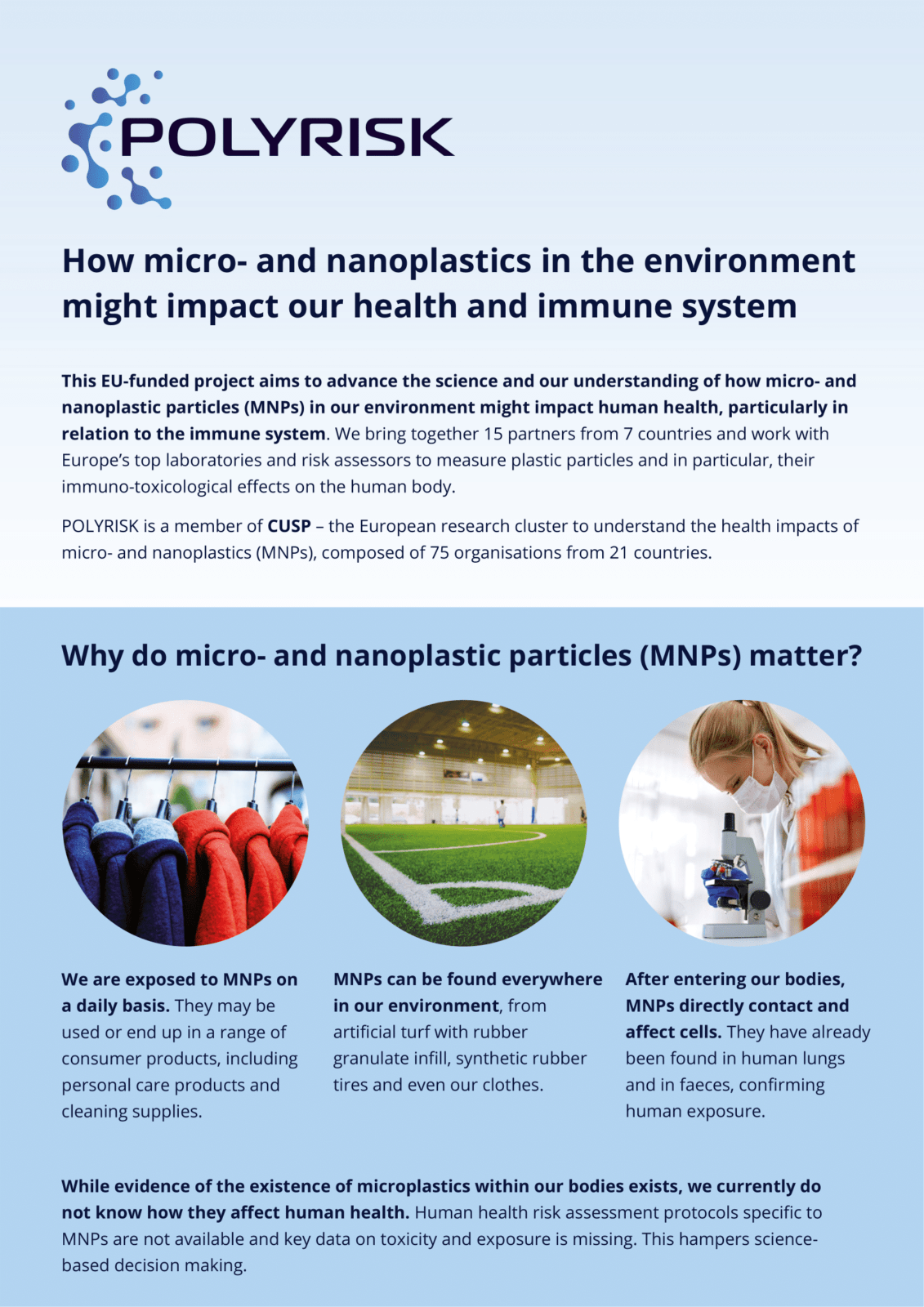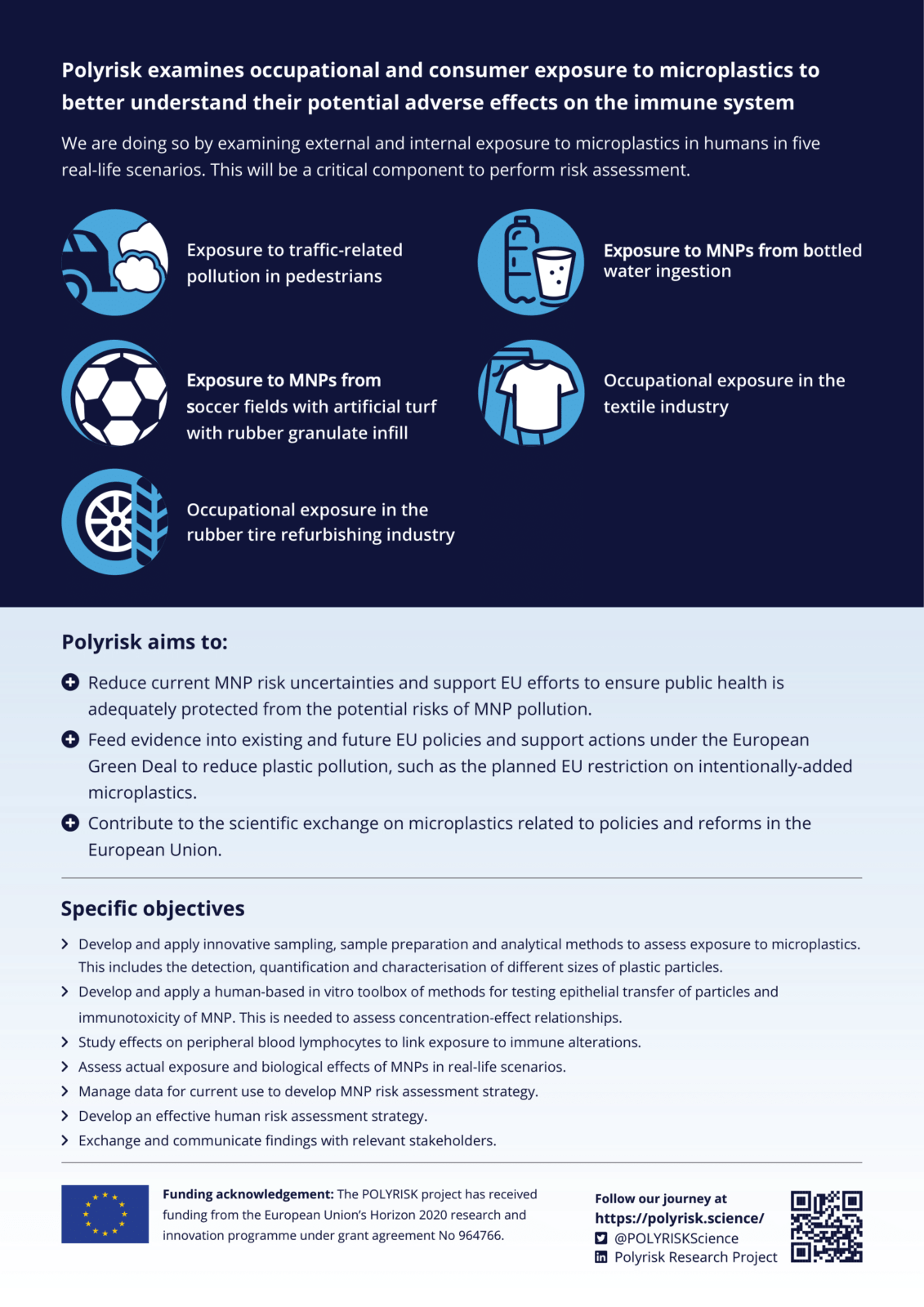To raise awareness of the impacts of PFAS on human health, HEAL is organising a series of three webinars in October 2024, each focusing on a different health impact of PFAS. The first webinar on 10 October focuses on impacts on the immune system. The subsequent webinars will focus on cancer and the impacts of exposure in early life and pregnancy.
We are all exposed to micro- and nanoplastic particles (MNPs) on a daily basis. But while evidence of the existence of microplastics within our bodies exists, we currently do not know how they affect human health. The new Polyrisk flyer launched today illustrates how this EU-funded project aims to advance the science of how MNPs in our environment impacts health, particularly in relation to the immune system.
Download the Polyrisk research flyer as a PDF.
Micro- and nanoplastics (MNPs) can be found everywhere in our environment, from artificial turf with rubber granulate infill to synthetic rubber tires, food and even our clothes. They may be used in a range of consumer products, including personal care products and cleaning supplies. After entering our bodies, MNPs directly contact and may affect cells: microplastics have already been found in human lungs and in faeces, confirming human exposure.
While evidence of the existence of nano- and microplastics within our bodies exists, we currently do not know how they affect health. Human health risk assessment protocols specific to MNPs are not available and key data on toxicity and exposure is missing, hampering science-based decision-making.
The flyer launched today introduces Polyrisk and how the research project examines human exposure, including occupational exposure to nano- and microplastics, to better understand their potential adverse effects on the immune system. We are doing so by examining external and internal exposure to microplastics in humans in five real-life scenarios:
- Exposure to traffic-related pollution
- Exposure to MNPs from soccer fields with artificial turf with rubber granulate infill
- Occupational exposure in the rubber tire refurbishing industry
- Exposure to MNPs from bottled drinking water ingestion
- Occupational exposure in the textile industry
Polyrisk is a research project funded under the European Union’s Horizon 2020 programme, that examines human exposure to MNPs and their potential toxic effects. The Polyrisk consortium aims to:
- Reduce current MNP risk uncertainties and support EU efforts to ensure public health is adequately protected from the potential risks of MNP pollution.
- Feed evidence into existing and future EU policies and support actions under the European Green Deal to reduce plastic pollution, such as the planned EU restriction on intentionally-added microplastics.
- Contribute to the scientific exchange on microplastics related to policies and reforms in the European Union.
Together with four other large-scale projects, Polyrisk is part of the European Cluster on Health Impacts of Micro- And NanoPlastic, called CUSP. The work of the cluster focuses on understanding micro- and nanoplastics in our environment and how exposures to these could impact human health. In close collaboration with the European Commission’s Joint Research Centre (JRC) and a constant dialogue between scientists, stakeholders and policy makers, CUSP is enhancing the policy relevance and impact of research on this topic.
HEAL is a project partner in the Polyrisk research project and leads the work package on communication, dissemination and engagement for policy impact. Visit Polyrisk’s website to learn more about this research project.






